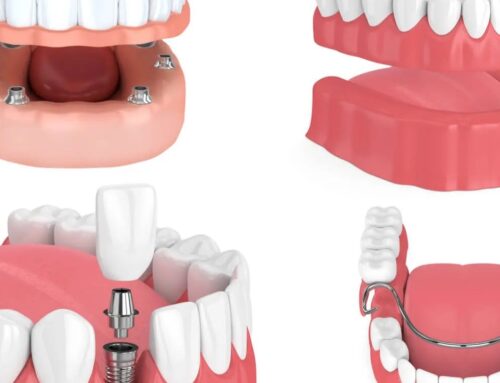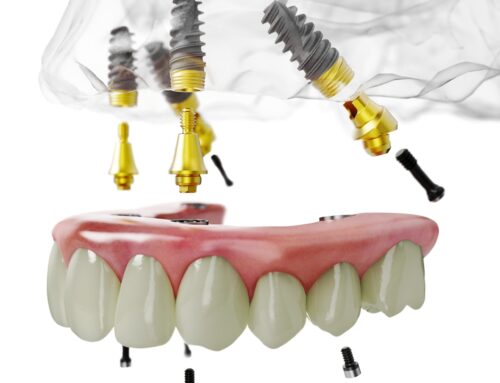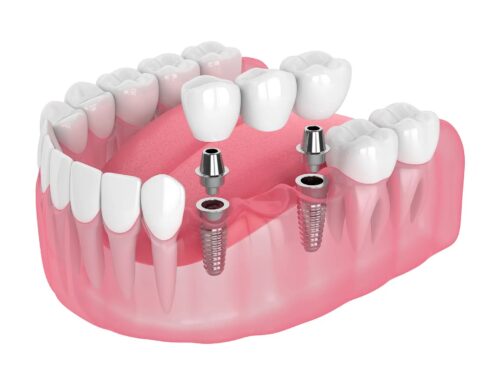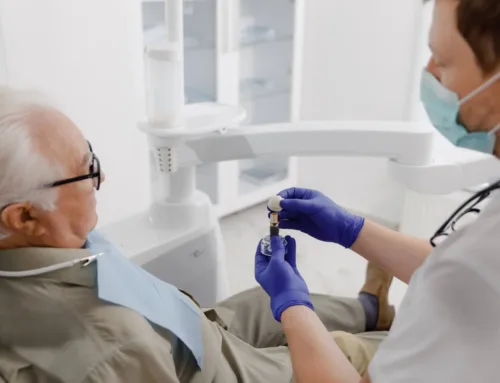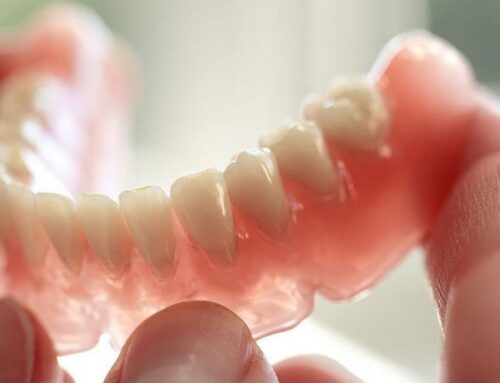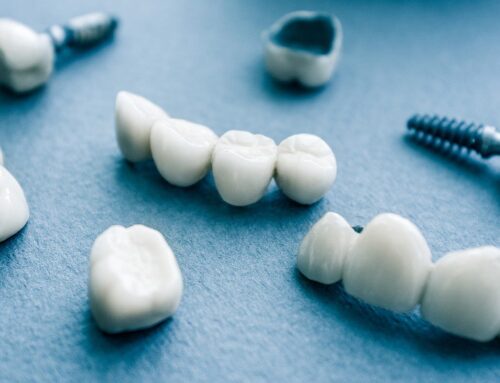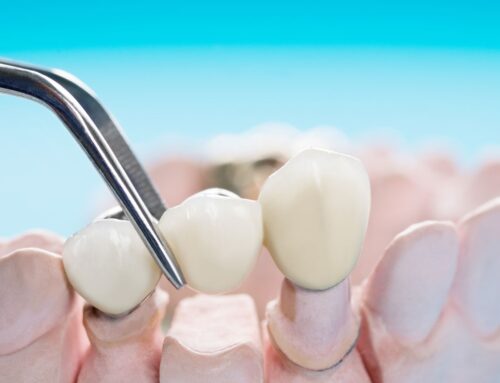Avoiding Bone Density Loss in the Jaw Due to Lost or Missing Teeth
Good oral health includes many aspects of dental hygiene, including taking steps to maintain healthy bones and prevent bone density loss. Brushing, flossing and visiting the dentist at regular intervals is a good start, but as your dental care provider will tell you, there are many other important factors that aren’t as easy to see or identify that certainly contribute to good oral health.
For example, the potential for a loss of bone density is a serious issue, and can be a significant cause of oral health problems affecting the jaw, teeth and mouth. A nutrient-rich diet and a thorough dental care routine play significant roles in maintaining bone density in the jaw, which in turn helps to prevent and even works to reverse the problems associated with oral bone density loss and other related dental health problems.
Why Does Bone Density Loss Occur?
Bone density loss is a problem that occurs when the body begins to break down and reabsorb bone tissue. This loss of density can be responsible for creating a lack of stability in the jaw structure and even in the teeth themselves, beginning with loosening and even loss of teeth. Furthermore, the loss of teeth due to accidental impacts or traumas to the mouth also increase the likelihood and rate of bone density loss. Teeth are critically important to the structural integrity of the mouth and jaw, and when teeth are lost the area of bone surrounding the gap where the tooth was can start to degrade and become weaker.
Loss of bone density can occur at any age, but is most often associated with conditions like osteoporosis, improper diet lacking in key nutrients required for bone growth and maintenance, as well as the untreated loss of existing teeth by your dentist. Addressing each of these factors can play a different but crucial role in helping you preserve and maintain healthy bones. Your dentist can help to explain in detail how to best address these factors both at home and through regular dental care, and there are several measures which will help empower you as the patient to improve and strengthen bone density as well as overall oral health.
Preventive Measures to Address Bone Density Loss
Luckily, taking steps towards the prevention of bone density loss is something you can begin on your own at home, even starting today with simple adjustments to your dietary intake. When it comes to what you eat, there are several ways in which diet impacts your overall oral health and can build or strengthen bone density. Maintaining a healthy level of calcium intake is perhaps one of the easiest and most obvious steps that can be taken at home. The first foods that often come to mind when thinking of a calcium rich diet are typically dairy products, like milk, cheese, and yogurt. However if you are lactose intolerant (or simply looking for variety), there are many other ways to enrich your calcium intake and strengthen your bones.
For example, nuts such as almonds, and seeds such as sesame, poppy and chia are calcium-rich foods that can boost your intake of this vital mineral, and are easy to incorporate into your diet. Also certain types of fish, such as salmon and sardines, are excellent additions to your diet that are high in bone-strengthening nutrients and minerals. Other non-dairy foods that are high in calcium include things like beans, lentils and pulses, leafy greens, soy products, and even figs.
Along with increasing your calcium intake as a proactive measure against the loss of bone density, it is also imperative to ensure that your diet includes an adequate amount of Vitamin D. Vitamin D is essential in helping your body to absorb the calcium it needs to build and maintain strong bones. Some foods are fortified with this crucial nutrient, and although there are not as many food options that are naturally high in Vitamin D, there are some readily available choices. A diet that is high in Vitamin D may include things such as red meat and liver, varieties of fish like salmon and tuna, as well as egg yolks. If you have concerns about getting an adequate amount of Vitamin D to ensure proper calcium absorption for building and maintaining bone density, it is always a good idea to talk to your health care provider about potential supplements and smart choices for enriched foods. The sooner you make these dietary adjustments, the better your chances of avoiding any serious health and dental complications related to bone resorption and bone density loss.
Unfortunately, many patients may not realize that there is any issue with underlying bone structures in the mouth until more serious problems develop, which can make bone density loss more difficult to treat or reverse. Your dental care provider is well-trained to identify the early warning signs of these conditions, and will advise you on what steps, beyond simple diet adjustments, can help to maintain healthy bones. Many of these steps start with following routine advice you have probably already received at your dental cleanings.
Practicing good oral health routines like brushing with a proper fluoride toothpaste and flossing regularly, are certainly an easy measure through which you can contribute to maintenance of healthy bones and jaw structure. Similarly, ensuring that you visit your dental care provider at the recommended intervals – typically every six months on average – for your regular cleaning and dental care are steps that can be taken early enough to help prevent serious bone density loss before other significant dental problems present themselves. However, if a more serious problem does happen to develop, your regular visits to the dentist are also a smart step in making sure that these problems are treated promptly, and to avoid letting bone density loss continue on to a more advanced state.
One of the most common and more serious signs patients may present with is the looseness of teeth, and this is often one of the first indicators that there may be an underlying issue with bone density loss. At the same time, tooth loss does not necessarily indicate that it is too late for a patient to reverse the damage. In fact, it is possible for your dental care provider to prevent further weakening of the bone by replacing any missing teeth with the proper type of dental implant.
As your Georgian Dental care provider knows, the act of chewing and applying pressure through the teeth to the jaw bone plays a significant role in maintaining bone density. Therefore having any missing teeth examined and replaced through implants can be a critical step towards building bone density, and preventing further tooth loss due to the deterioration of bone tissue within the jaw. This is especially true when more than one tooth is missing, which makes dental implants an ideal solution not only to replace teeth but to help maintain healthy bone structure in your mouth.
Even if a patient has more severe bone density loss, which can sometimes make dental implants more challenging and a more complex procedure, there are solutions that allow for the replacement of lost teeth to enable repair to the underlying bone tissue. Dental bone grafting, a process through which bone is collected from elsewhere within the body and added to the weakened areas of the mouth, is a potential solution to those suffering a more critical bone density loss in the jaw. In order to facilitate the dental implant, a bone graft from the hip, rib, chin, or even a denser area of the jaw bone itself, is surgically applied to the weakened bone structure, thus providing a firm anchor point upon which the implant can then take hold. By forming a strong base with a bone grafting procedure and then replacing missing teeth through dental implants, it is possible to restore the affected area. This restoration will then allow for gradual re-strengthening and rebuilding bone density in the weakened areas, helping to prevent further bone or tooth loss. It is truly never too late for bone density loss to be addressed by your dental professional, and it is always best to avoid delay in asking your dentist about how missing teeth can be replaced.
Take Action Today to Prevent and Reverse Bone Density Loss
At Georgian Dental, our team knows that concerns over tooth loss must be taken seriously and the implications of bone density loss can be severe. We are here to help; and our team can recommend many ways through which you can begin to improve oral health both at home and through specialized dental treatment. Taking steps to maintain healthy bones and prevent bone density loss truly does start at home, by first examining diet and daily dental routines. Brushing and flossing, enjoying a nutritious diet rich in calcium and Vitamin D, as well as regular dental visits are often correlated with better oral health and the prevention of bone density loss. If a regular visit does reveal loosening teeth, tooth loss, or another sign of deteriorating bone density, it is never too late to take steps to stop and even reverse the process. And should you experience tooth loss, our dental care team is highly experienced in both dental implants and dental bone grafting as may be required to prevent further bone loss and help to rebuild bone density towards your overall oral health.
If you have questions or concerns about diet, dental implants, or other issues related to your oral health, do not hesitate to talk to us here at Georgian Dental. We are happy to help to explain how to address factors contributing to bone density loss both at home and through regular dental care. At Georgian Dental, we are here to empower you as the patient to improve and strengthen your bone density as well as your overall oral health.
Appointment Request
If you’re interested in any of our procedures, and would like to meet with one of our dentists to discuss options, costs and get additional information, complete this short form and we’ll give you a call to arrange for a no-obligation appointment at our Barrie clinic.

